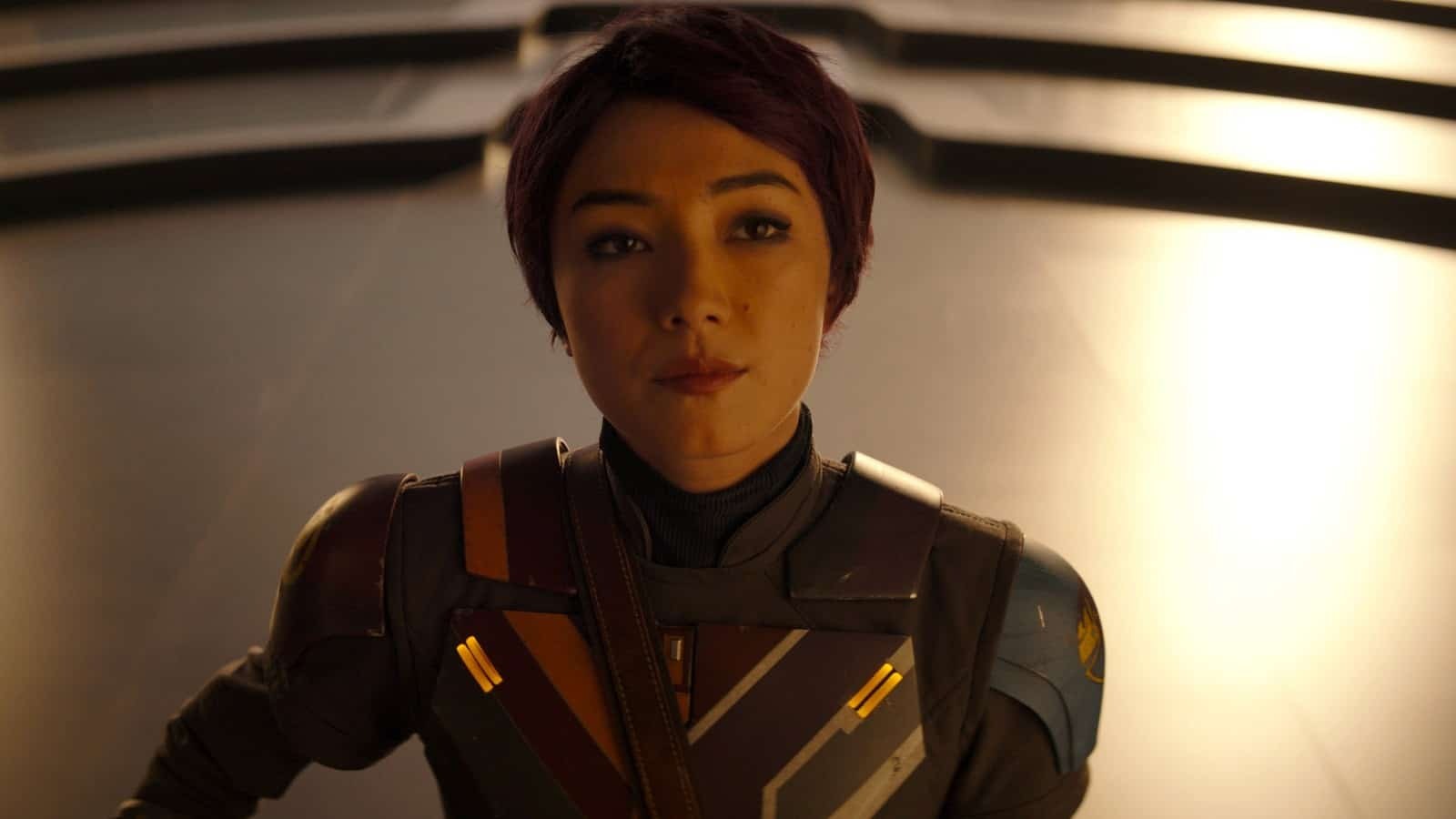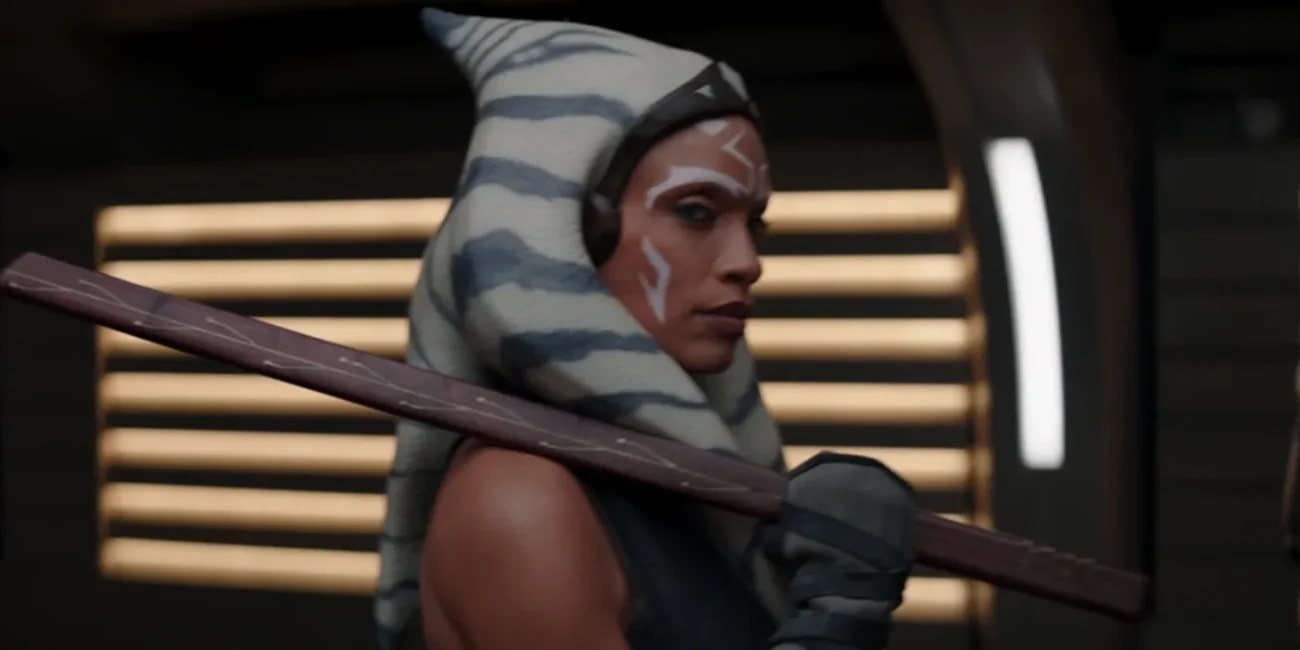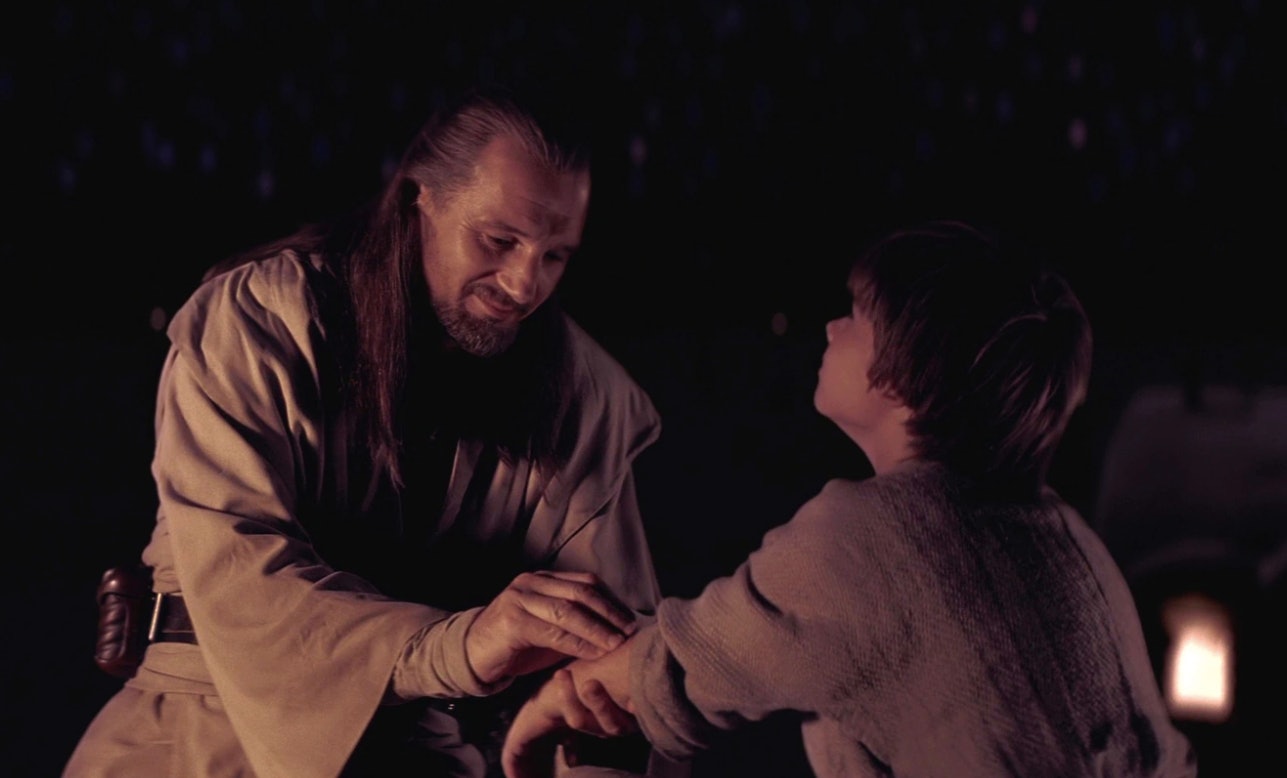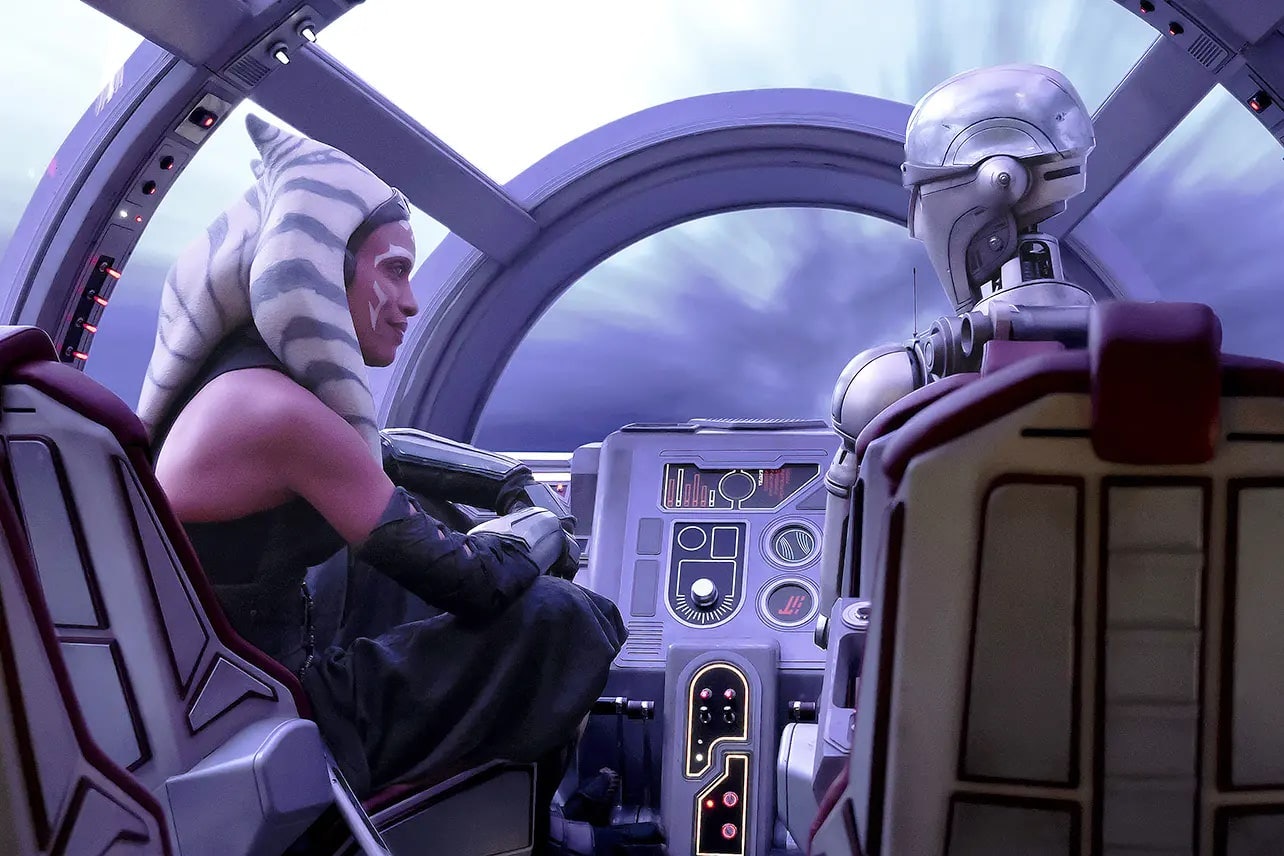
As soon as the promotion for Ahsoka kicked off, one question quickly rippled throughout the fandom: Is Sabine Force-sensitive? We kept seeing her referenced as Ahsoka’s apprentice, but Sabine Wren is a Mandalorian, not a Jedi.
Sure enough, the two-episode premiere of Ahsoka revealed Sabine had previously been in Jedi training under Ahsoka, though it didn’t go well. Later, the ancient robot Huyang tells her that, of the countless Jedi he’s guided over the years, her Force powers rank at the very bottom. But despite all that, Sabine is at it again in Ahsoka Episode 3, and in a key discussion with her master, we finally realize why she’s able to train even if she’s not as Force-sensitive as the Jedi who preceded her.

After a rough training session, Sabine expresses frustration with her abilities, saying she can’t use the Force because she doesn’t feel it the way Ahsoka does.
“The Force resides in all living things. Even you,” Ahsoka replies. Sabine asks her why everyone doesn’t train as a Jedi if that’s true. “Talent is a factor. But training and focus are what truly define someone's success,” her Jedi master answers.
It seems like “Force sensitivity” isn’t at all what we first thought. The ability to feel and sense things through the Force isn’t an ability that you either have or don’t, but instead a skill that can be cultivated. Most Jedi are privileged to have an innate proficiency in this skill, but the universality of the Force means that anyone living in the Star Wars galaxy can use the Force with enough discipline. The Force is everywhere and in everyone.
This was confirmed by Lucasfilm executive Pablo Hidalgo, who took to Twitter to clarify this new reveal. “I suspect the term ‘Force-sensitive’ (which dates back to 1978’s Splinter of the Mind’s Eye, btw) may confuse things,” he said. “If it’s at all helpful, think of ‘gifted’ or ‘talented’ as an analog.” Being “Force-sensitive” isn’t an ability in and of itself, but a privilege that some beings in the Star Wars universe possess.

That said, it’s worth remembering that “Jedi” itself is a flawed title. Ahsoka rejected the Jedi Order, and just because Sabine would be turned away at the door of a Jedi academy doesn't mean she can’t still get in touch with the Force. Ahsoka says this very thing only moments later to Huyang: “I don't need Sabine to be a Jedi. I need her to be herself.”
The Last Jedi highlighted the fact that anyone can be strong with the Force, from a “nobody” like Rey to a kid with a broom. (Did anyone ever test Broom Boy’s midi-chlorian count?) This concept was more or less abandoned in The Rise of Skywalker, but Ahsoka is now taking this sentiment a step further. Not only can the smattering of spontaneously Force-sensitive beings across the universe use the Force, but with the right amount of time and discipline, anyone can do it.

This opens quite literally endless possibilities for Force users in the future. Sure, Din Djarin may be a Mandalorian first and foremost like Sabine, but if he so chooses he could attempt to learn to use the Force like his young clanmate Grogu. Whether or not Finn is Force-sensitive is a major point of contention around the sequel trilogy, but with this revelation, it doesn’t really matter.
Ahsoka Tano’s entire journey has been one of redefinitions. Though she was raised in the Jedi Order and taught what she thought was the best way for Jedi training and a Jedi Order to work, she later discovered the flaws in such an organization and left it all behind. Now, she’s redefining what it means to be a Force user. It doesn’t mean you have a certain threshold of midi-chlorians or that you’re a Jedi or a Sith. It means you’re in touch with the Force within you, and in turn, the Force that is everywhere else. If Sabine can do it, anyone in the Star Wars universe can.







